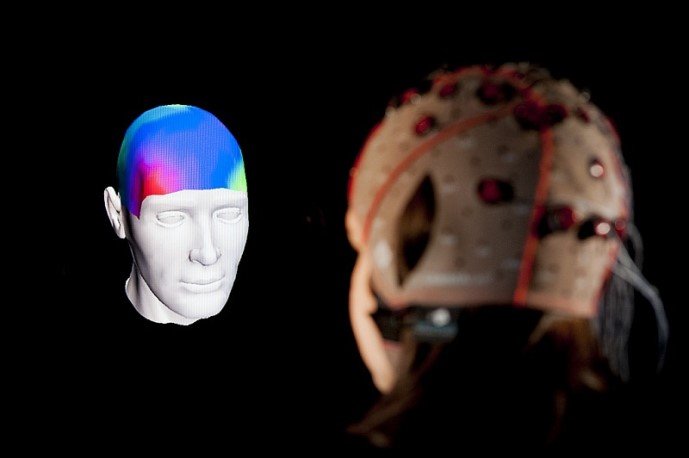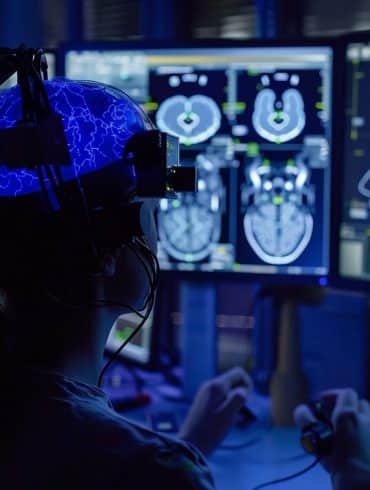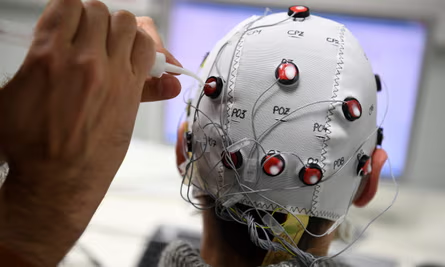In recent years, there has been a rapid development in neurological enhancement technologies. These advancements aim to boost human cognitive abilities, improve memory, and even combat neurological disorders. From brain-computer interfaces to nootropic drugs, the world of brain augmentation is changing the way we think about intelligence, health, and human potential. This article explores the latest breakthroughs, their applications, and the ethical considerations surrounding this exciting field.
1. What is Neurological Enhancement?
Neurological enhancement refers to the use of various technologies and methods designed to improve or augment the brain’s capabilities. These technologies have the potential to enhance memory, learning abilities, and overall brain function. There are several types of neurological enhancement techniques being explored:
- Brain-Computer Interfaces (BCIs): Devices that allow direct communication between the brain and external devices. BCIs are used to treat neurological diseases and have applications in enhancing cognitive abilities.
- Nootropics: Also known as “smart drugs,” nootropics are substances designed to improve cognitive functions such as memory, focus, and creativity.
- Neurostimulation: Techniques like transcranial direct current stimulation (tDCS) use electrical currents to stimulate brain activity and improve mental performance.

2. Types of Neurological Enhancement Technologies
A. Brain-Computer Interfaces (BCIs)
BCIs are one of the most exciting developments in the field of neurological enhancement. These devices create a direct communication pathway between the brain and computers or machines, making it possible to control devices with thought alone. The potential applications of BCIs are vast, ranging from helping paralyzed individuals regain movement to enhancing human cognitive abilities.
- Current Applications: BCIs are already being used to help patients with severe neurological conditions, such as ALS and spinal cord injuries, by enabling them to control prosthetic limbs or communicate through speech-generating devices.
- Future Potential: Researchers believe that BCIs could one day be used to improve memory, focus, and even allow humans to “download” information directly into their brains.
B. Nootropic Drugs and Supplements
Nootropics are a class of substances that claim to improve cognitive function, especially executive functions like memory, attention, and motivation. These substances, which include both natural and synthetic options, are becoming increasingly popular in the quest for brain enhancement.
- Popular Nootropics: Substances like caffeine, ginseng, and modafinil are often used by people to boost alertness and cognitive performance. More advanced synthetic nootropics are being researched for their ability to improve brain function over the long term.
- The Science Behind Nootropics: While some nootropics are backed by scientific research, others are still under investigation. Scientists are working to understand how these substances interact with the brain and whether they have long-term benefits or side effects.
C. Neurostimulation
Neurostimulation techniques involve using electrical impulses to stimulate the brain. These techniques can enhance cognitive functions, improve mood, and even aid in treating various mental health conditions.
- Transcranial Direct Current Stimulation (tDCS): This non-invasive technique involves applying a low electrical current to the scalp to enhance brain activity. It has shown potential for improving cognitive abilities like memory and learning.
- Transcranial Magnetic Stimulation (TMS): TMS is another form of neurostimulation that uses magnetic fields to stimulate nerve cells in the brain. It is often used to treat conditions like depression, but it is also being explored for its cognitive-enhancing potential.

3. Applications of Neurological Enhancements
A. Enhancing Cognitive Performance
The most common application of neurological enhancements is improving cognitive performance. Technologies like BCIs and neurostimulation are designed to boost memory, concentration, and decision-making abilities. This is particularly beneficial for individuals looking to improve their academic or professional performance.
- Student Success: Imagine a world where students can enhance their ability to retain information, study for exams with ease, and focus better in class. Brain augmentation could be the key to academic success.
- Professional Benefits: Professionals could enhance their ability to think critically, solve problems faster, and be more creative at work. This could have a profound impact on industries like tech, healthcare, and finance.
B. Treating Neurological Disorders
Neurological enhancement technologies are also being used to treat a variety of brain disorders. Diseases like Parkinson’s, Alzheimer’s, and multiple sclerosis (MS) affect millions of people worldwide, and there is hope that brain augmentation could provide effective treatments or even cures.
- Brain-Computer Interfaces for Disabled Individuals: BCIs can allow individuals with severe disabilities to regain some level of independence by enabling them to control devices and communicate with others using their thoughts.
- Neurostimulation for Mental Health: Neurostimulation techniques, such as tDCS and TMS, have been used to treat conditions like depression, anxiety, and even post-traumatic stress disorder (PTSD).
C. Memory Enhancement and Learning
With the growing interest in cognitive enhancement, memory improvement is one of the most sought-after benefits. People who suffer from poor memory, such as those with age-related cognitive decline or traumatic brain injuries, could benefit from these advancements.
- Improving Memory in Older Adults: As people age, memory and cognitive function naturally decline. Neurological enhancement technologies may offer solutions to help older adults maintain their mental sharpness.
- Boosting Learning Abilities: Students, professionals, and lifelong learners alike may find it easier to acquire new skills, retain information, and perform at their best with brain-boosting technologies.

4. The Ethical Considerations
While the potential benefits of neurological enhancements are exciting, there are significant ethical concerns that need to be addressed. These technologies raise questions about fairness, accessibility, and even the fundamental nature of what it means to be human.
A. Access and Inequality
One of the main concerns is the accessibility of these technologies. If neurological enhancement becomes widespread, there is a risk that only wealthy individuals or countries will have access to these tools, leading to further inequality in society.
- The Digital Divide: If access to brain-boosting technologies is limited to a select few, it could widen the gap between the rich and the poor. This could lead to a society where those with access to brain enhancements have an unfair advantage over others.
B. The Risk of “Cognitive Enhancement Arms Races”
As with any new technology, there is the possibility that individuals or nations may use neurological enhancements to gain a competitive edge. This could lead to a “cognitive arms race,” where people feel pressured to undergo brain augmentation just to keep up with others.
- Personal Autonomy vs. Pressure: As enhancements become more common, people may feel that they need to augment their brains to be successful in society. This raises the question of whether individuals should be allowed to make their own decisions about their cognitive abilities, or whether society will push them into enhancement.
C. Long-Term Health Effects
The long-term effects of neurological enhancements are still largely unknown. While some technologies, like nootropic drugs and neurostimulation, have shown promise, there are concerns about their long-term safety and potential side effects.
- Unforeseen Consequences: As we delve deeper into brain augmentation, we may encounter unexpected consequences that could harm mental health or cognitive function. The risks of long-term use of these technologies must be carefully evaluated.
5. Conclusion: The Future of Brain Augmentation
The field of neurological enhancement is rapidly evolving, and while the potential benefits are undeniable, there is still much to be learned. As these technologies continue to develop, it will be crucial to balance progress with ethical considerations. The future of brain augmentation holds exciting possibilities, from improving cognitive performance to treating neurological disorders. However, it is important to ensure that these advancements are accessible, safe, and used in a way that benefits society as a whole.
As we continue to explore the limits of human cognition, it’s clear that the brain enhancement revolution is just beginning. The question remains: How far are we willing to go in our pursuit of greater brainpower, and what impact will these technologies have on our future?
Minimum Wage Increases: Examining the Effects of Wage Hikes in Over 20 States






